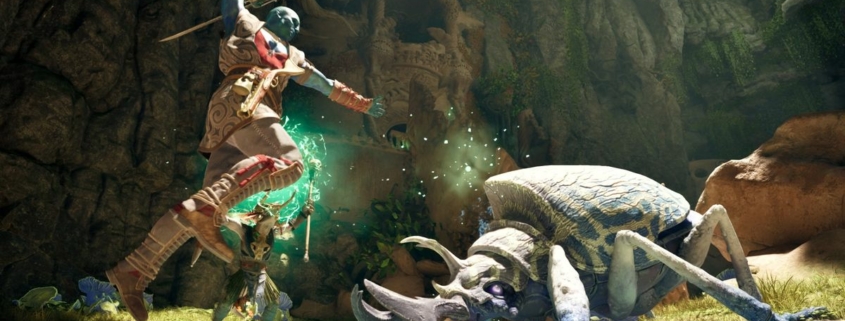Obsidian seems scared people will compare Avowed to Skyrim, but it shouldn’t be—the similarities are obvious, but the differences make it compelling



Within seconds of being set loose in a behind-closed-doors demo of Avowed at Gamescom, I had already walked up to a plant and ripped it apart for some key ingredient. The Skyrim-ness of Avowed has been much debated—Obsidian repeatedly downplaying the comparison, no doubt due to fears of disappointing anyone expecting something the size and scope of Bethesda’s sandbox behemoth.
This is all fine and good—I cannot speak to the size of Avowed, or the depth of its story. What I can say is that, having played through a dungeon-sized encounter, there is a comforting familiarity to Avowed’s moment-to-moment exploration. Let’s not beat around the bush: It’s kinda like Skyrim.
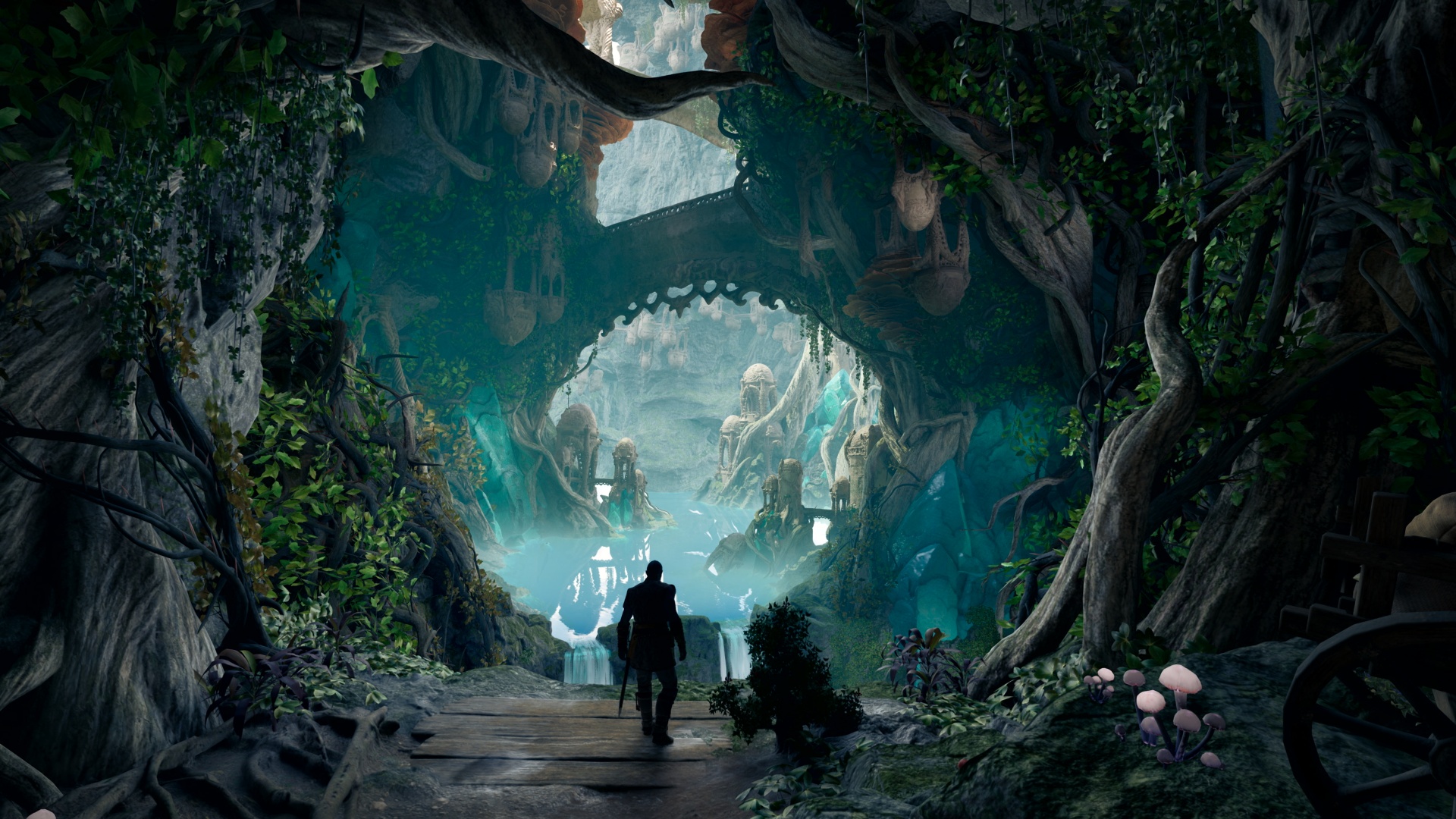
So yes, I saw a plant I could interact with, walked up and stripped it of its ingredients. I picked the legs off giant spiders, and scoured around for chests full of potions and other assorted loot. I do not know what these things are actually used for, but I can certainly imagine how my growing alchemical collection might be put towards some familiar crafting systems. Sure, it lacks some larcenous depth, by which I mean I could not fill my pockets full of forks and cups and cheese wheels and other household items. On the macro level, though, the vibes are clear.
If it sounds like I’m being facetious, I am, but only a little bit. Avowed is a first-person fantasy RPG. I’m wandering around with a companion in tow, dual-wielding weapons, crouching in the darkness in order to sneak up on my enemies. The comparison to Skyrim is as obvious as it is inevitable, and as much as Obsidian seems to want to downplay it, I don’t think the studio needs to.
The familiarity is a boon that accentuates the interesting things Avowed is doing that make it stand out. And while I only played for about an hour, I’m convinced. I want to see more—to draw out the things I experienced to their conclusion and fill out the bigger picture of how the games systems all interact.
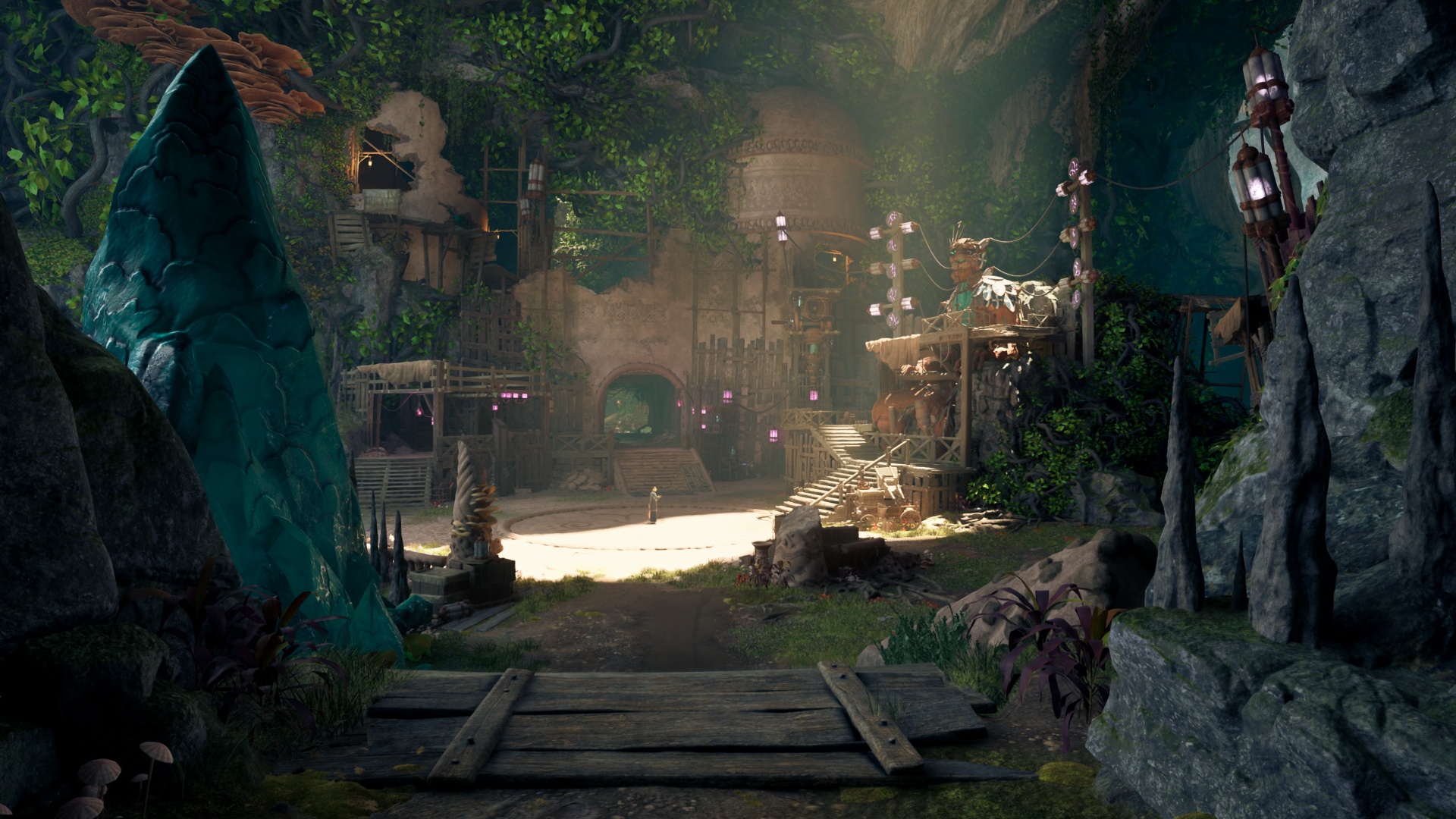
The most striking difference, at least initially, is just how vibrant Avowed feels. Generally an RPG cave is a drab place—grey rock, murky puddles, just a real dank hangout. But Avowed makes great use of lush vegetation and luminescence to make its palette really pop. And magic effects feel well chosen to stand out against the naturalistic colours of the scenery. It gives the impression of a fantasy setting that wants to stand out—something further reinforced throughout the actual quest I play through.
My job, at least initially, is to find a missing expedition team. Instead I discover a gold guy—Sargamis, a dawn godlike. He’s just hanging out, tending to the statue he’s built of the god Eothas. He definitely hasn’t seen any expedition, oh no, nobody has passed through here in a long time. But while we’re looking for them, he asks that me and Kai, my coastal aumaua companion, wade deeper into some collapsed ruins to retrieve a splinter of Eothas—a relic that just so happens to be exactly what the expedition was looking for. “Perhaps you will meet your expedition along the way,” he suggests, somehow managing not to wink at the camera.
The comparison to Skyrim is as obvious as it is inevitable, and as much as Obsidian seems to want to downplay it, I don’t think the studio needs to
My trek to the splinter, and the corpses of the expedition that Sargamis definitely killed, requires getting a better grip on combat. There are no locked classes in Avowed—you can mix and match between skills of different types—but the character I picked had been pre-equipped with a bunch of perks from the Ranger tree. In addition to the bows and pistols I was carrying, I had a couple of neat skills designed to make the most of ranged combat. Tanglefoot placed vines underneath an enemy’s feet, rooting them in place for a time. And Shadowing Beyond let me turn invisible, repositioning around the battlefield and letting me unleash a powerful backstab that seemed to instantly kill most of the enemies I tried it on.
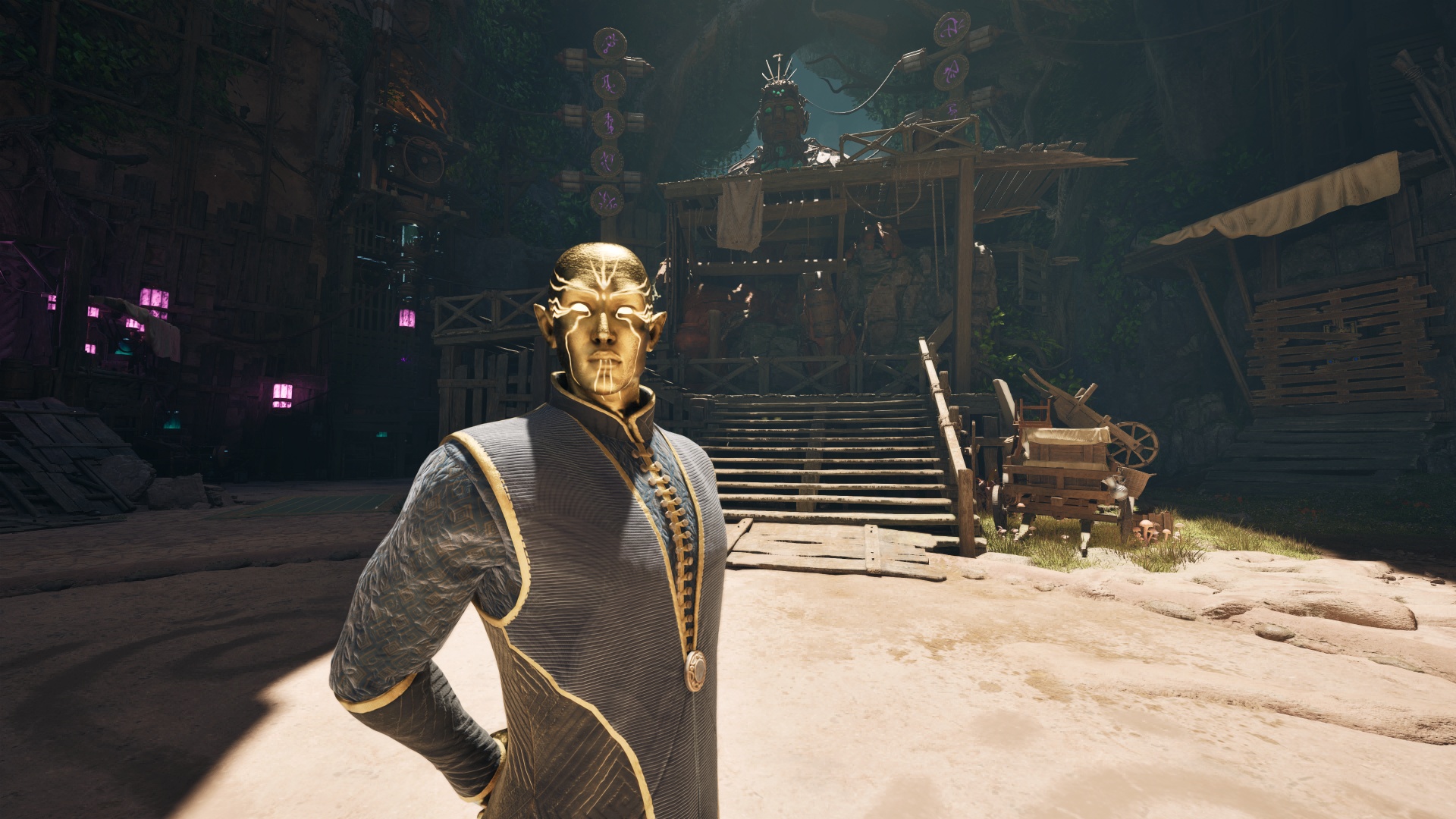
Combat was chaotically frantic, even with these tools. Using Kai as a de facto tank, I still found myself in a couple of tight spots, mostly thanks to ranged enemies and their ability to stagger me mid-potion quaff—disrupting my ability to heal. But there’s a very satisfying loop to Avowed’s ranged combat. Holding the attack button triggers a slow-down effect—thanks to a passive skill on the Ranger skill tree—and brings up a little red diamond that you can aim at for extra damage. There’s a compelling rhythm to it.
That said, the PC gaming snob in me does wonder about how much depth there will be in the skill system here. Combat feels engineered to be comfortable on a gamepad—which is what the Gamescom demo was set up for. The ability to mix up different skills from different combat types should lead to some nice experimentation, but it’s hard not to look at the UI and wonder about how streamlined and efficient it all feels—and how well it will hold interest over a full RPG adventure.
There’s also a light elemental system in place. At one point, I had to ask Kai to use his fire attack on a web that was blocking my path. And later in the demo, when I was deep into the ruins, I could use the lightning effect on my primary gun to activate mechanisms that unlocked some extra loot. It was all pretty basic stuff, but showed the bones of what could be a fun wrinkle to exploration and combat—at least assuming Obsidian pushes out the complexity throughout the full game.
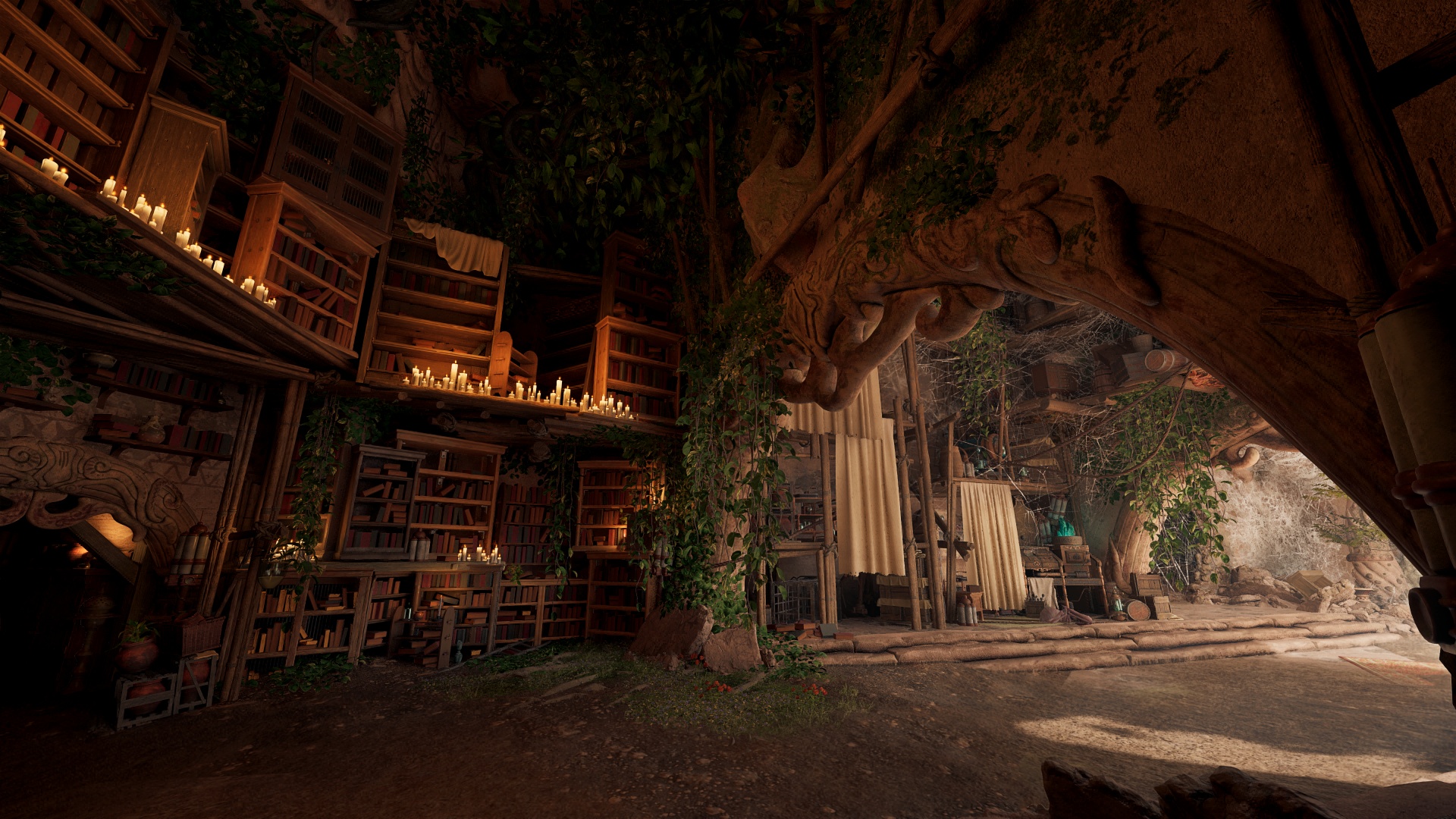
Eventually I find the expedition, and surprise, they’re all dead. Or at least sort-of dead. Returning to Sargamis, he admits that he’s ripped out their souls and intends to stuff them into his special god statue. His plan is to use the splinter to draw Eothas into his creation, where the souls of the expedition team will act as his conscience—forcing the god to atone for the wrong he has done. Which is a neat concept for what could have easily been a fairly bog-standard dungeon dive. Here’s where Obsidian feels in its element—creating interesting story hooks that speak to the nature of the world it has made.
Since playing the demo, a handful of colleagues have asked me about Avowed, and for the most part I’ve told them: “Yeah, it’s good. It’s a bit like Skyrim.” And as true as that is, it’s also just the easiest answer, because hopefully—if this short play session is representative of what the full game might be—it’s also the least interesting thing about Avowed.
Source link

